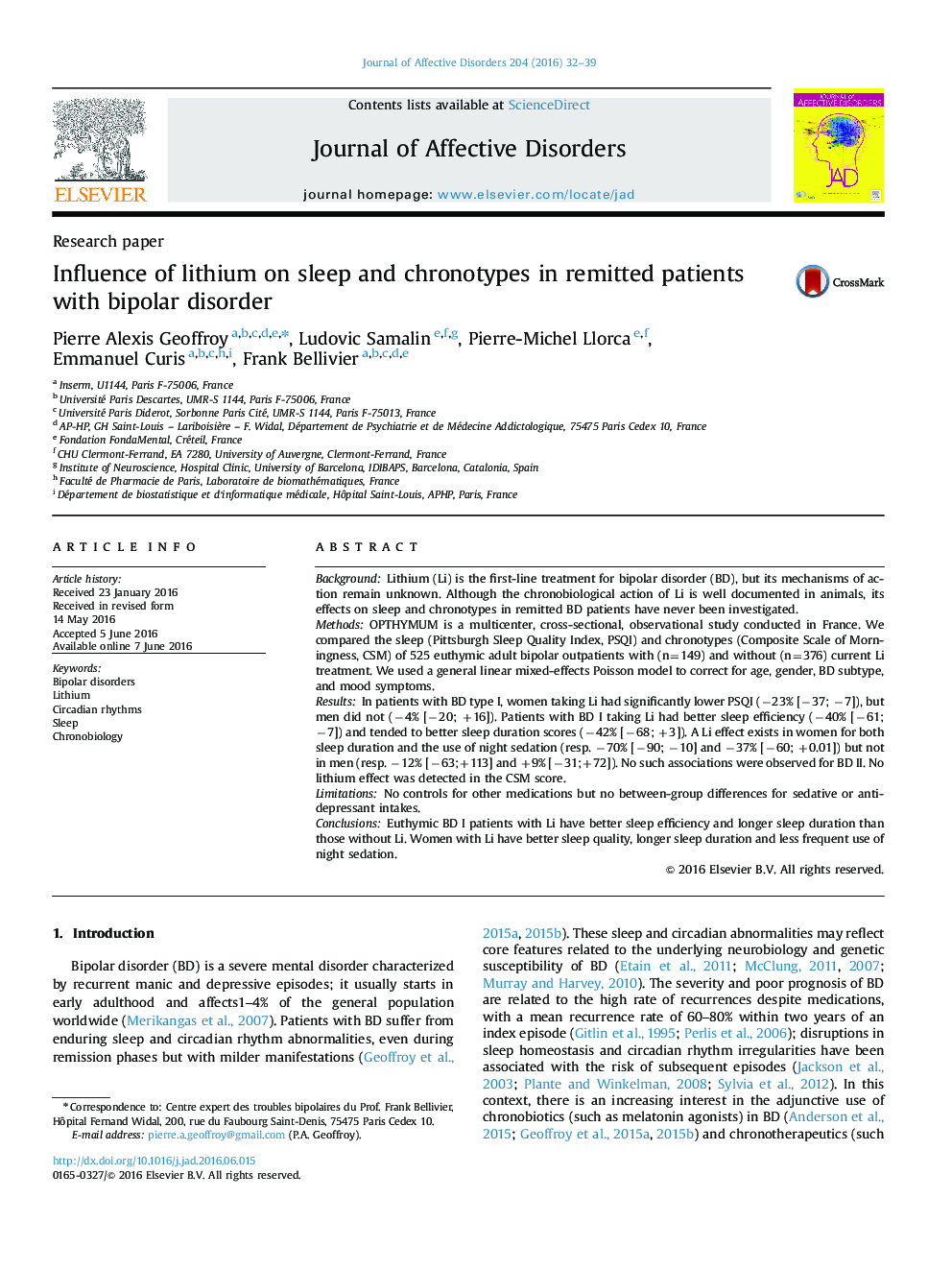| Article ID | Journal | Published Year | Pages | File Type |
|---|---|---|---|---|
| 6229577 | Journal of Affective Disorders | 2016 | 8 Pages |
â¢Lithium acts at a physiological and molecular level on biological rhythms.â¢Euthymic BD I patients receiving lithium, compared to those not receiving lithium, have better sleep efficiency and longer sleep duration.â¢Women receiving lithium have better sleep quality, longer sleep duration and less frequent use of night sedation.â¢Euthymic patients receiving and not receiving lithium have similar chronotype profiles.
BackgroundLithium (Li) is the first-line treatment for bipolar disorder (BD), but its mechanisms of action remain unknown. Although the chronobiological action of Li is well documented in animals, its effects on sleep and chronotypes in remitted BD patients have never been investigated.MethodsOPTHYMUM is a multicenter, cross-sectional, observational study conducted in France. We compared the sleep (Pittsburgh Sleep Quality Index, PSQI) and chronotypes (Composite Scale of Morningness, CSM) of 525 euthymic adult bipolar outpatients with (n=149) and without (n=376) current Li treatment. We used a general linear mixed-effects Poisson model to correct for age, gender, BD subtype, and mood symptoms.ResultsIn patients with BD type I, women taking Li had significantly lower PSQI (â23% [â37; â7]), but men did not (â4% [â20; +16]). Patients with BD I taking Li had better sleep efficiency (â40% [â61; â7]) and tended to better sleep duration scores (â42% [â68; +3]). A Li effect exists in women for both sleep duration and the use of night sedation (resp. â70% [â90; â10] and â37% [â60; +0.01]) but not in men (resp. â12% [â63;+113] and +9% [â31;+72]). No such associations were observed for BD II. No lithium effect was detected in the CSM score.LimitationsNo controls for other medications but no between-group differences for sedative or antidepressant intakes.ConclusionsEuthymic BD I patients with Li have better sleep efficiency and longer sleep duration than those without Li. Women with Li have better sleep quality, longer sleep duration and less frequent use of night sedation.
